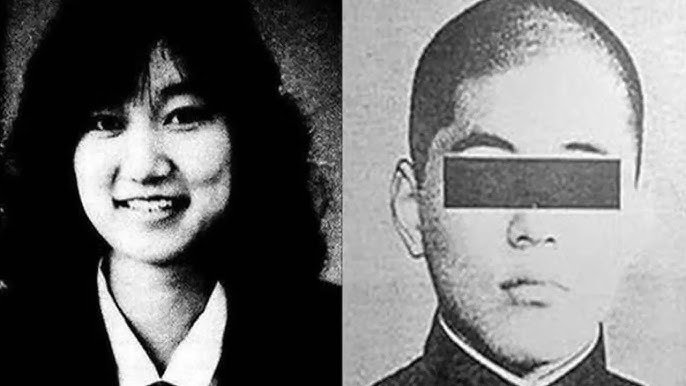The tale of Junko Furuta is one of unimaginable tragedy and resilience. Junko, a 17-year-antique Japanese excessive faculty student, has become the victim of a horrific crime that greatly surprised the arena. Her abduction, torture, and premature loss of life exposed dark realities of gender-primarily based violence and the failure of societal and criminal structures to prevent such atrocities. True crime lovers regularly revisit her story to explore how her case unfolded. Gleichzeitig, advocates of gender-based total violence, use it as a rallying cry for justice and societal reform.
This blog dives into the details of Junko Furuta’s case, the subsequent quest for justice, and the lasting effect her story left on Japan and the past. It’s a painful yet significant reminder of the work that still needs to be done to combat gender-based violence.
(Content warning: This weblog discusses sensitive subjects, along with violence, abuse, and murder. Please proceed with caution.)
The Tragic Timeline
At just 17 years old, Junko Furuta had dreams of a shiny destiny. Described as diligent and kind-hearted, she became a model pupil and loved buddy. Everything changed on November 25, 1988, when she was abducted by a group of four young adults led by Hiroshi Miyano.
What unfolded over the next 40 days remains one of the most brutal cases of abuse in modern-day records. Junko continued intense physical and emotional torture, sexual assault, and inhumane situations while being held captive in a residence in Adachi, Tokyo. Despite residing in a densely populated neighborhood, those around her and the perpetrators’ own family remained silent. Her suffering continued until January 4, 1989, when she succumbed to her injuries.
Forensic details paint an annoying image of her ordeal. While recounting her tale for awareness is essential, raising society’s awareness of the instructions it can learn to prevent comparable tragedies is equally crucial.
Perpetrators and Justice
The four perpetrators—Hiroshi Miyano, Jō Ogura, Shinji Minato, and Yasushi Watanabe—were all young adults at the time of the crime. Their surprising lack of remorse and callous movements captured global interest. What confounded many similarly changed into the leniency in their punishment.
Given their long time, the prison gadget handled them with relative leniency beneath Japan’s Juvenile Law. Hiroshi Miyano, considered the ringleader, obtained a sentence of two decades. However, he was released on parole after serving plenty, much less time. The other perpetrators confronted, in addition, decreased sentences. Public outrage over the sentencing highlighted glaring shortcomings inside the judicial device when addressing crimes of such severity.
The injustice of Junko Furuta’s case has led to numerous required legal reforms in Japan, with many advocating for harsher consequences for violent crimes, specifically minors.
Impact on Japan
Junko Furuta’s case has become a cultural wake-up call for Japan. At the time, gender-primarily based violence was regularly swept beneath the rug in conservative societal systems. Her tale sparked national protests, petitions, and broader cognizance of the want to guard vulnerable corporations, especially women and children.
Her case also found shortcomings in how Japanese society dealt with crimes regarding juveniles and abuse sufferers. Activists demanded stricter legal guidelines, public education on abuse, and better support frameworks for victims. While a few developments have been made due to the overdue Nineteen Eighties, many argue Japan still has an extended way to move in terms of gender equality and protection for abuse survivors.
Internationally, Junko Furuta’s story has become a symbol of resilience and the need for systemic exchange. Her name is referred to, along with different famous instances of gender-based violence that have reshaped public discourse.
Remembering Junko Furuta
Despite the injustice and pain related to her tale, Junko Furuta’s life has no longer been forgotten. Activists, artists, and educators have taken up her legacy to combat abuse and violence. Her story remains a poignant reminder of why society should do higher, from documentaries and books to petitions advocating for criminal reforms.
Memorials and cognizance campaigns are dedicated to her memory. October 30, regularly regarded as a day to honor sufferers of abuse in Japan, has visible actions in her call. By sharing her story, many desire to spotlight the continuing trouble of gender-based total violence and encourage human beings to take a stand against it.
Remembering her is not just about recounting the tragedy—it’s about keeping the verbal exchange alive across the systemic modifications needed to ensure nobody else endures what she did.
What We Can Do Now
Junko Furuta’s tragic tale consists of enormous training for all of us. This isn’t a tale we can clearly read, experience sadness approximately, and then circulate on. It’s a call to motion. Advocates in opposition to abuse have outlined steps we will take as people and society:
- Support Victims: Actively guide groups that help abuse survivors. Look for ways to make contributions, whether through donations, volunteering, or selling attention.
- Educate Yourself: Equip yourself with the knowledge to recognize abuse and intervene competently. Education is the first step in prevention.
- Challenge Societal Norms: Advocate for a subculture that supports survivors, not blames them. A shift in societal attitudes is essential for lowering stigma and inspiring sufferers to seek help.
- Push for Legal Reform: Wherever you live, speak up about legal guidelines and rules that want updating to protect prone populations better.
The combat towards gender-primarily based violence and abuse is some distance from over. By remembering Junko Furuta—and limitless others who have suffered—each folk can do our component to create a more secure and extra equitable society.


